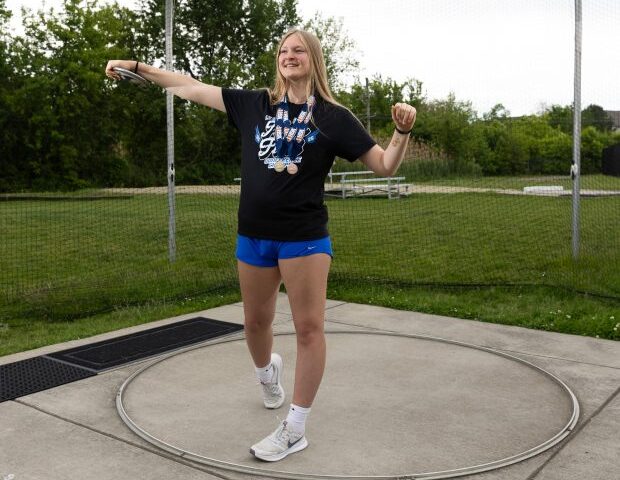Called into court Thursday to explain how she plans to fix long-standing problems at the state’s troubled child welfare agency, Gov. J.B. Pritzker’s new Department of Children and Family Services director assured a judge there would be improvement by the end of the year while acknowledging getting that done won’t be easy.
“I don’t think there’s disagreement about the fact that there’s a lot of work to do,” DCFS head Heidi Mueller said in a Cook County juvenile courtroom.
Cook County Judge Patrick Murphy, the county’s former public guardian, summoned Mueller to his courtroom to discuss what he called the “systemic” problem of children being kept by DCFS in emergency or psychiatric facilities longer than medically necessary, which often causes their condition to worsen.
Murphy on Thursday cited the case of a child held in an emergency room for a week as he experienced a severe mental health crisis, at times restrained and “pumped full of antipsychotics” — a situation that the judge said he felt violated the child’s legal and constitutional rights.
“We’re driving them crazy by keeping them hospitalized,” Murphy said.
Mueller, a veteran of the state’s juvenile justice system who was appointed by Pritzker in January to lead DCFS, said she has seen more consideration being put into developing specialized and foster care for wards of the state under Pritzker than in previous administrations she has worked with.
But the agency’s inability to place children promptly received heightened criticism under Mueller’s predecessor, Pritzker appointee Marc Smith, who was held in contempt of court a number of times for violating court orders by failing to find children appropriate placements in a timely manner, though those orders were later vacated.
A report released at the end of 2023 showed that during the fiscal year ending June 30, there were 330 instances of children hospitalized in psychiatric hospitals beyond the medically necessary length of stay. More than 300 children in DCFS care waited more than a day in emergency rooms for psychiatric hospital admission, the report from DCFS to the state legislature said.
Overall, there were more than a thousand instances of children who languished in places such as psychiatric hospitals, jails, out-of-state facilities or hospital emergency rooms for extended periods of time, the same report said, a slight increase from the previous year.
Mueller agreed that DCFS needs to work to place children more quickly but said she doesn’t yet have specific goals set for how many beds need to be created for various needs. She acknowledged more placement options are needed for tougher cases and said one issue that needs to be addressed is holding providers accountable, particularly those that refuse to take certain children.
The department is working to develop foster care, guardianship options and specialized care for kids with developmental disabilities, neurodivergent children and LGBTQ youth. It has already awarded grants to some providers for those initiatives, she said. The agency wants to place children in environments that feel like home and avoid simply creating “warehouses” for them, she said.
“I’m not going to promise you … that we are going to solve everything in six months,” Mueller said. But, she added: “By the end of this calendar year, you will definitely see improvement.”
Murphy framed the problem as straightforward: “How are we going to keep kids from rotting in an emergency room for more than a day or two?”
In addition to the placement problem, the agency has frequently come under fire in the last five years for what critics have said is the poor handling of some investigations into the abuse and neglect of children.
Pritkzer is seeking greater investment in DCFS. The budget he proposed in February includes $100 million in capital grants for the next fiscal year to increase the capacity for youth placement.
DCFS for more than three decades has operated under federal court oversight due to litigation from the American Civil Liberties Union of Illinois. The department made slow but steady progress in the 1990s, but then entered an era of massive turnover and controversy, cycling through more than a dozen directors in the last 20 years. Mueller’s predecessor, Smith, lasted longer than many other directors, stepping down after nearly five years as head of the agency.
Mueller on Thursday said the department’s job is to look at each child holistically, placing them appropriately based on a wide range of factors including mental health, the child’s wants and cultural needs.
“But you’re not doing it,” Murphy replied. “That’s why you’re here.”



